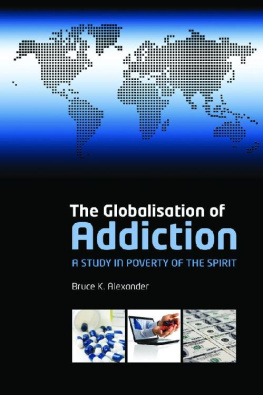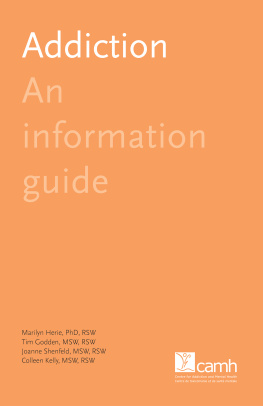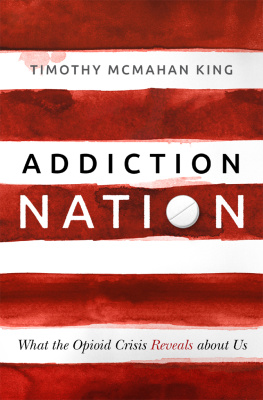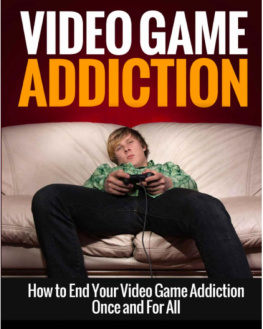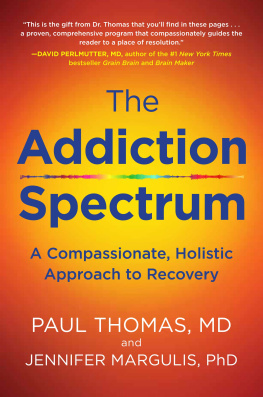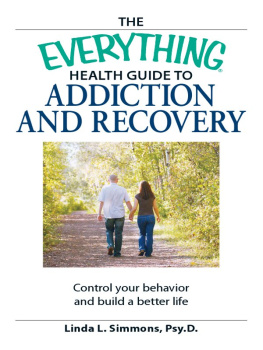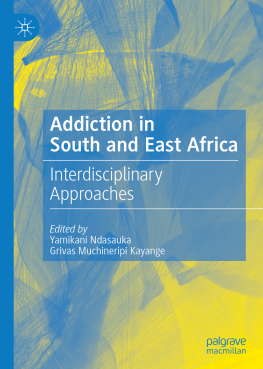The Globalisation
of Addiction
A Study in Poverty of the Spirit
The Globalisation of
Addiction
A Study in Poverty of the
Spirit
Bruce K. Alexander
Department of Psychology
Simon Fraser University
Vancouver
British Columbia
Canada


Great Clarendon Street, Oxford OX2 6DP
Oxford University Press is a department of the University of Oxford.
It furthers the Universitys objective of excellence in research, scholarship,
and education by publishing worldwide in
Oxford New York
Auckland Cape Town Dar es Salaam Hong Kong Karachi
Kuala Lumpur Madrid Melbourne Mexico City Nairobi
New Delhi Shanghai Taipei Toronto
With offices in
Argentina Austria Brazil Chile Czech Republic France Greece
Guatemala Hungary Italy Japan Poland Portugal Singapore
South Korea Switzerland Thailand Turkey Ukraine Vietnam
Oxford is a registered trade mark of Oxford University Press
in the UK and in certain other countries
Published in the United States
by Oxford University Press Inc., New York
Oxford University Press 2008
The moral rights of the author have been asserted
Database right Oxford University Press (maker)
First published 2008
All rights reserved. No part of this publication may be reproduced, stored in a retrieval system, or transmitted, in any form or by any means, without the prior permission in writing of Oxford University Press, or as expressly permitted by law, or under terms agreed with the appropriate reprographics rights organization. Enquiries concerning reproduction outside the scope of the above should be sent to the Rights Department, Oxford University Press, at the address above
You must not circulate this book in any other binding or cover
and you must impose this same condition on any acquirer
British Library Cataloguing in Publication Data
Library of Congress Cataloguing in Publication Data
Alexander, Bruce K.
The globalisation of addiction: a study in poverty of the spirit / Bruce K. Alexander.
p.; cm.
Includes bibliographical references and index.
ISBN 9780-199230129
1. Compulsive behavior. 2. Substance abuse. 3. Compulsive behaviorSocial aspectsCanada. 4. Substance abuseSocail aspectsCanada. I. Title.
[DNLM: 1. Behavior, AddictivepsychologyBritish Columbia. 2. Psychology, SocialBritish Columbia. 3. Social AdjustmentBritish Columbia. 4. Social EnvironmentBritish Columbia. 5. SpiritualityBritish Columbia. 6. Substance-Related DisorderspsychologyBritish Columbia.WM 176 A374g 2008]
RC533.A44 2008
616.86dc22
ISBN 9780199230129
Whilst every effort has been made to ensure that the contents of this book are as complete, accurate and up-to-date as possible at the date of writing, Oxford University Press is not able to give any guarantee or assurance that such is the case. Readers are urged to take appropriately qualified medical advice in all cases. The information in this book is intended to be useful to the general reader, but should not be used as a means of self-diagnosis or for the prescription of medication.
To my four wonderful children, each of whom is finding a good path, in spite of all this. In order of appearance: Ben, Alexa, Paul, Dorian.
Acknowledgements
If it takes an entire village to raise a child, how many people does it take to write a book? This one was nourished and supported from conception by a multitude of thinkers. Some of these thinkers are professional scholars, some not. Some I know well, some I have only read. Some are long-dead historical figures. Those I encountered face-to-face often shared their personal stories with me, as well as their abstract ideas. These indispensable face-to-face collaborators included Benjamin Alexander, Paul Alexander, Nancy Alexander, Ethan Alexander-Davey, Kim Alscher, Barry Beyerstein, Jan Blomberg, Andrew Boden, Marilyn Bowman, John Bogardus, Paul Carter, Douglas Cameron, Roy Carlson, Charles Crawford, Harry Crosby, Phil Dalgarno, Earl Davey, Robert Derkson, Tana and George Dineen, Pat Erickson, Mary Etey, Harry Evans, Susan Evans, Rick Fence, Chaouac Ferron, Lorraine Fish, Rose-Hannah Gaskin, Kevin Gomes, Donald Gordon, Kathleen and Gordon Gray, David Hackley, Frank Harris, Ted Harrison, Amber Hui, Ivan Illich, Jangwon Kim, Sharon Kravitz, Michael Maraun, James Marcia, Ian Marcuse, Gabor Mat, Gary McCarron, Susan McCook, Teresa McInnes, Barry Morris, Bryan Nadeau, Dorian Alexander Nijdam, Stephen Ogden, Jim Orford, Eugene Oscapella, Stuart Parker, Terry Patten, Greg Placonouris, Ted Poole, Kevin Potvin, Mary Reid, Wyn Roberts, Ken Sailor, Ernesto Salvi, Dan Savard, Jeffrey Schaler, Anton Schweighofer, Stefa Shaler, Curt Shelton, Lauren Slater, Dan Small, Art Steinmann, Alexa Stone, Kerstin Strzbecher, Sam Sullivan, Larry Tallman, Donald Todd, Arnold Trebach, Jon Tsou, Robert Underwood, Savannah Walling, Joan and Michael Wolfe, Linda Wong, Armine Yalnizyan, and Norman Zinberg. Members of my family and personal friends who appear on this list sustained the project with their encouragement and personal support, as well as their ideas.
Curt Shelton has helped with this book throughout. At the end, he organised the countless tasks required to bring the manuscript to completion and to get it to the publisher. He found a great burst of energy for this mountain of finishing work at a time when my own was running out.
This book was completed only because my wife, Patricia Holborn, treated the fragile gropings of my mind and the tumult of my enthusiasms with steadfast good humour, all the while keeping up with her own demanding professional responsibilities and because she made the ever-fickle computer work when I could only curse and because she maintained a degree of domestic order without which both manuscript and writer might have been submerged in the litter . and because in some other way that I do not fully comprehend, she breathed substance into the text. It is hers, too.
Also, a huge thank you to Inspiration Ledge.
Contents
Everything in this book is as factually accurate as I can possibly make it with one exception. Key details in biographical accounts of people who I know personally have been fictionalised to protect their identities. These fictions have been checked with the people involved to ensure that they do not distort the essential truth of their accounts, which have been approved by them for publication.
All quotations in the text are written in English. Where the original text was French, I translated the material myself with the guidance of my teacher and friend, Chaouac Ferron.
Why are so many people dangerously addicted in the globalising world of the 21st century? Why does the range of addictions extend so far beyond drugs and alcohol to gambling, shopping, romantic love, video games, religious zealotry, television viewing, internet surfing, an emaciated body shape and on and on? Why has scientific medicine, a dazzling success in so many other domains, not brought addiction under control? These mysteries are best investigated by viewing addiction historically. A historical perspective affords an unhurried look at what addiction is, why it has always existed, why it appears to be spinning out of control just now, and what modern society can hope to do about it. Moreover, it provides a fresh view of certain aspects of the madness of todays world that might seem unrelated to addiction at first.
The value of a historical perspective seized my attention only a few years ago. Frustrated after decades of inconclusive research and marginally successful service in treatment and harm reduction, I changed my line of work permanentlyor so I thought. I resolved to forget about addiction and to cultivate my interest in history instead, limiting my university teaching to the history of psychology for a few years.I read historians as well as others who could inform me about the past: anthropologists, political scientists, economists, ancient philosophers, and investigative journalists. I deliberately avoided works concerning drugs or addiction, for my new interests were quite different. Without meaning to, however, I kept coming across insights into addiction that were more powerful than those I had encountered in the professional literature on addiction. I had been looking in the wrong place all along.

